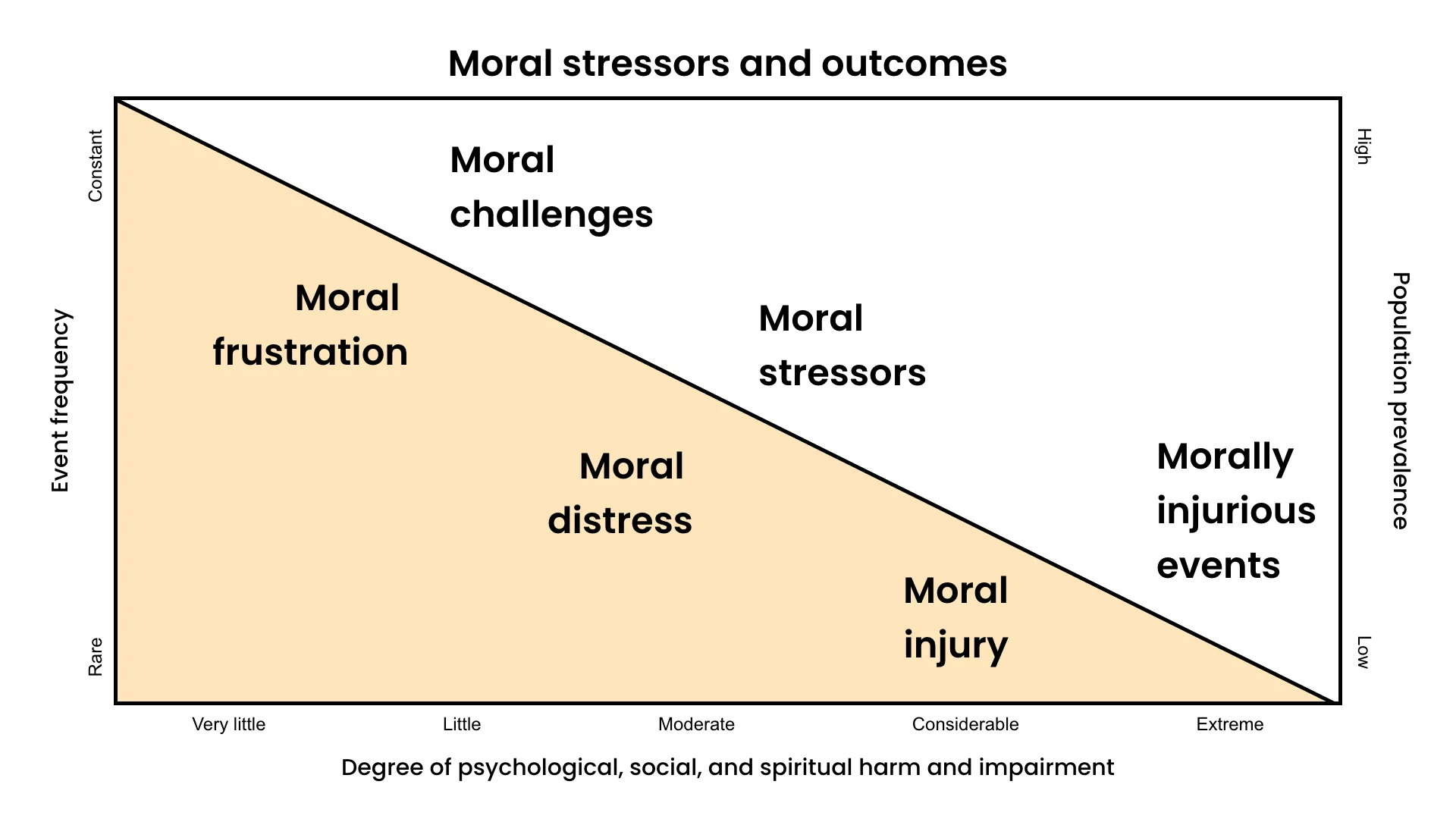What is psychological trauma?
Psychological trauma refers to lasting emotional impacts of living through or learning about a distressing event. These events, known as traumatic events, can be singular (e.g., assault) or repetitive (e.g., abuse), and while some people are more likely to experience a traumatic event, these may happen to anyone, regardless of profession or background.
Importantly, if you are having trouble managing your emotions, reactions, or day-to-day life following traumatic events, please seek support.
Common impacts following a traumatic event include:
- Muscle tension
- Low mood
- Feeling “out of control” of your actions or emotions
- Increased irritability or anger
- Memory difficulties (e.g., gaps, loss)
- Disinterest in activities you used to enjoy
- Short-term memory challenges (e.g., forgetting where you parked your car)
- New difficulties controlling negative patterns of thinking (e.g., feeling hopeless)
- Difficulty with concentration and decision making
- Increased intensity or frequency of fear responses (e.g., more easily startled)
- Changes in how you think about yourself, other people or the world around you
- Recurring thoughts, memories, or dreams about the traumatic event
- Difficulties with sleep (e.g., falling asleep, staying asleep, waking up in the middle of the night)
- Withdrawing or disconnection from your surroundings
Other impacts of psychological trauma that aren’t talked about as often include:
- Dissociation, which is a way to “numb out” when things get overwhelming, through disconnection from our surroundings, and can occur either through depersonalization or derealization.
- Depersonalization: Feeling as though your body does not belong to you, or as though you are “outside” of your body.
- Derealization: Feeling as though things around you are unreal or strange (e.g., as though you’re in a movie).
Guilt, which are feelings of having done something “bad” or “wrong” following the traumatic event. Often, these feelings may show up as thinking about past events and thinking that you or someone else “could have” or “should have” done something differently. Sometimes people may even feel guilty that they survived an event that another person did not. This is known as survivor guilt, and can lead to feelings of negativity about ourselves, or even thoughts about whether we “deserved” to survive compared to those who lost their lives.
Shame is the feeling that part of me is “wrong” or “broken,” and can be a very challenging emotion to navigate following traumatic events. These events may make us feel like the way we reacted means something bigger about who we are as people, or even as though the traumatic event that happened was somehow their fault. Shame is a negative feedback loop that can stop us from wanting to seek help because we may feel like we do not “deserve” to live a stable, healthy life.
Moral injury is a type of stress response that occurs after a morally distressing experience, where we feel that our own deeply held morals have been violated in some way. Symptoms can include psychological, social, behavioural, and spiritual changes that might impact how we see ourselves or other people.

Moral stressors and our associated moral reactions exist on a spectrum. Moral challenges may prompt feelings of moral frustration but do not lead to any lasting impairment, such as worries about “the state of the world.” Moral distress brings up moral emotions and causes short-term increases in distress levels. Experiences such as being lied to or stolen from might induce moral distress, but they are unlikely to leave lasting impacts. On the far end of this spectrum are morally injurious events, which cause moral injury.
Vicarious traumatization, also called secondary traumatization, is something that can be especially challenging for individuals who work or volunteer in public safety, military, and healthcare settings, due to their more frequent exposure to victims of traumatic events and violent acts. This can occur when we hear about or witness events that have occurred but do not have direct impacts on us as individuals. The symptoms that occur following vicarious trauma are similar to that of experiencing a traumatic event personally.
Are you struggling?
Having trouble coping with your behaviours, emotions, or social changes following a traumatic event? This may be a normal reaction to witnessing, experiencing or hearing about traumatic situations that people go through. However, if this is causing you a lot of distress or getting in the way of how you would like to live your life, it may be important to seek support.
Supports can include:
- Peer support
- Talking with family or friends
- Religious or spiritual leaders
- Mental health professionals
Self-driven activities that may help reduce distress include:
- Identifying people, places or situations that trigger your stress responses in order to increase your awareness and cope ahead
- Labelling your emotions as you notice them rather than avoiding them
- Boxed breathing
- Progressive muscle relaxation
- Setting boundaries with yourself and with other people
